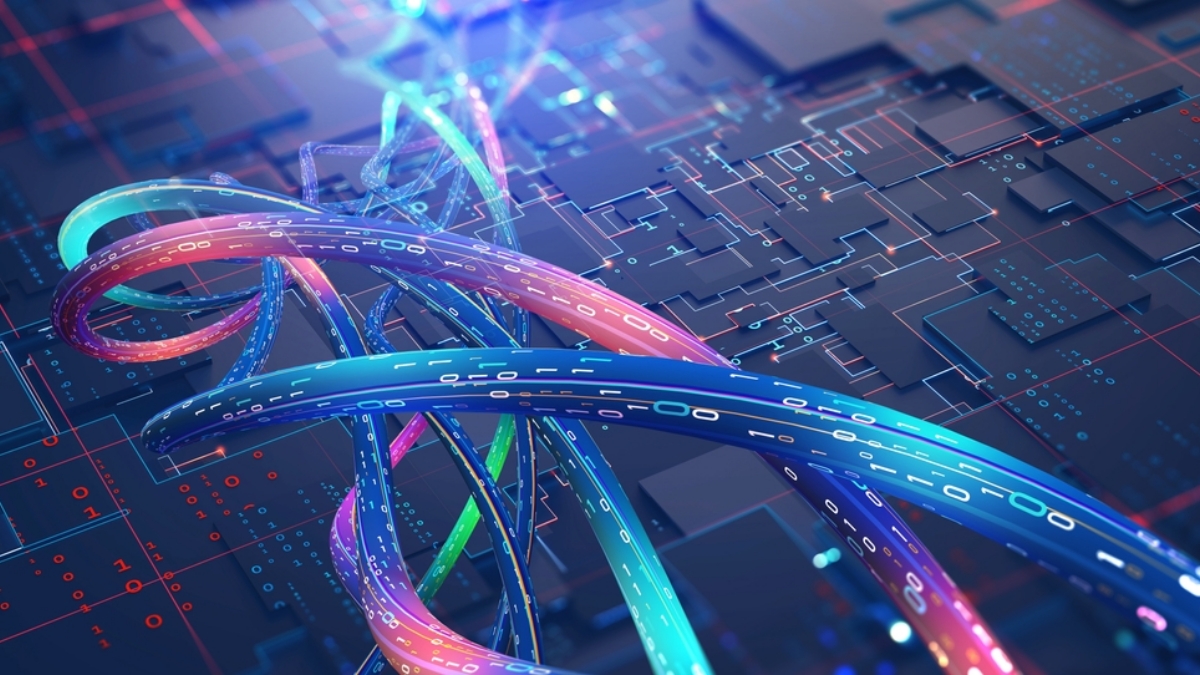With traditional analytics methods, companies often faced challenges in effectively harnessing their data due to various factors such as limited resources, lack of technical expertise and complicated tools. However, with Gen AI powered self-service analytics offered by platforms like Kyvos, these barriers are eliminated thanks to its user-friendly interface and powerful automation capabilities.
Gen AI in self-service analytics is a new approach to data analysis that combines the power of artificial intelligence (AI) with the ease and accessibility of self-service analytics. This groundbreaking technology has revolutionized the way organizations access, analyze and make decisions based on their data.
In this article, we will explore how Gen AI in self-service analytics is changing the game for businesses and why it’s becoming the preferred choice for data analysis.
What is Gen AI in Self-Service Analytics?
Gen AI in self-service analytics combines advanced AI algorithms with intuitive self-service tools to enable non-technical users to independently access, analyze and visualize complex data. This technology leverages machine learning and natural language processing (NLP) techniques to automatically surface insights from raw data, making it easier for anyone within an organization to understand and act upon.
One of the key features of Gen AI in self-service analytics is its ability to learn and adapt over time based on user behavior. This means that as users interact with the system, it becomes more personalized and provides more accurate and relevant insights.
Benefits of Using Gen AI in Self-Service Analytics
1. Increased Efficiency and Productivity
Gen AI in self-service analytics eliminates the need for data analysts or IT professionals to manually gather, clean and analyze data, freeing up their time to focus on more strategic tasks. This improved efficiency, allowing organizations to get insights faster and make better decisions in a shorter amount of time.
2. Democratization of Data Analysis
Traditionally, data analysis was limited to a small group of experts within an organization. However, with Gen AI in self-service analytics, anyone within the organization can access and understand complex data without needing specialized technical skills. This democratization of data analysis leads to more informed decision-making across all levels of the organization.
3. Improved Data Accuracy
Gen AI in self-service analytics uses advanced algorithms to identify and correct any errors or inconsistencies in data, leading to more accurate insights. This reduces the risk of making decisions based on incorrect or incomplete information, ultimately improving business outcomes.
4. Cost-Effective Solution
With Gen AI in self-service analytics, companies no longer need to invest heavily in expensive tools or hire specialized data analysts. This makes it a cost-effective solution for businesses of all sizes, allowing them to access and leverage their data without breaking the bank.
Challenges of Implementing Gen AI in Self-Service Analytics
While Gen AI in self-service analytics offers numerous benefits, there are also several challenges that organizations must address when implementing this technology. One significant challenge is data privacy and security. As AI systems handle vast amounts of sensitive information, ensuring this data is protected from cyber threats and breaches is crucial. Organizations need robust data governance strategies to safeguard their data assets and comply with regulatory standards.
Another challenge is the integration of Gen AI into existing systems and workflows. Many businesses have legacy systems that may not be compatible with new AI-driven technologies, necessitating substantial investment in system upgrades or replacements. Additionally, creating a seamless user experience that aligns with existing processes requires careful planning and execution to minimize disruption to daily operations.
Lastly, the complexity of AI algorithms can pose transparency challenges. Trusting AI-generated insights requires clarity on how these conclusions are reached. Thus, developing explainable AI models that provide clear reasoning for their recommendations is essential for user confidence in decision-making.
Navigating these challenges is crucial for businesses aiming to fully capitalize on the advantages of Gen AI in self-service analytics.
Applications of Gen AI in Self-Service Analytics
Gen AI in self-service analytics has endless applications across various industries and departments within an organization. Here are just a few examples:
1. Marketing
Gen AI in self-service analytics can help marketers who don’t have technical expertise identify patterns and trends in customer data to target their campaigns more effectively. It can also assist with sentiment analysis, allowing marketers to understand the emotions behind customer feedback and tailor their strategies accordingly.
2. Finance
In the finance industry, Gen AI in self-service analytics can be used for fraud detection, risk assessment and financial forecasting. With its ability to process large amounts of data quickly, it can provide valuable insights for making critical financial decisions.
3. Human Resources
Gen AI in self-service analytics can support HR professionals in identifying talent trends, forecasting workforce needs and analyzing employee performance data. It can also assist with diversity and inclusion efforts by identifying potential biases in hiring processes.
4. Healthcare
In the healthcare industry, Gen AI in self-service analytics can help with patient diagnosis, treatment recommendations and drug discovery. Its ability to process vast amounts of medical data can aid in detecting patterns and predicting outcomes for patients.
Conclusion
In conclusion, Gen AI is revolutionizing self-service analytics by enhancing accessibility, improving decision-making and reducing dependency on IT teams. Its ability to understand natural language and generate automated insights makes it an invaluable tool for business analysts, data scientists and IT leaders alike. By adopting AI-driven analytics, organizations can gain a competitive advantage in today’s data-driven world.
The continued evolution of Gen AI promises exciting possibilities, from deeper AI integration and personalized analytics to real-time data analysis. To prepare for this future, businesses must invest in training, foster innovation and collaborate with industry experts. By doing so, they can unlock the full potential of Gen AI and drive success in an increasingly competitive landscape.


